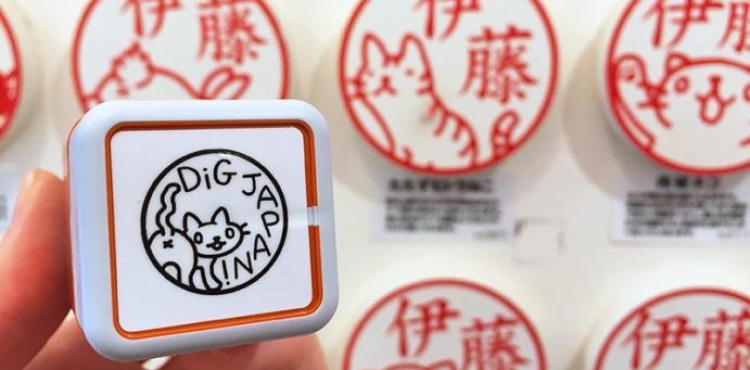The Japanese government seeks to limit the use of personal seals that are placed in the country on all types of documents, from delivery receipts to marriage certificates, but it is difficult to get rid of this habit prevalent in society.
In an effort to speed up the transition to a digital society, the new Japanese prime minister, Yoshihide Suga, declared war on these little seals known as "hanku" that hindered remote work in light of the epidemic, by forcing many to go to offices to stamp documents.
However, Takahiro Makino, who makes high-quality Hanko seals with their hand-engraved Minor Sino-Japanese symbols, remains optimistic about the future of his profession, which, in his opinion, will not disappear soon.
"We don´t need to use things that are no longer necessary," says the 44-year-old craftsman. "But valuable pieces always matter."
Hanko seals, once used by the nobles of Asia, have been prevalent in Japan for nearly two thousand years.
Makino begins by drawing the name of the person or company contained on the stamp in black ink onto a piece of wood before cutting it with a careful chisel in his Tokyo workshop.
The craftsman explains, "Even if we rely on the same writing style, each stamp remains different, as it is given a special touch that adapts to the needs of the customer."
Carefully crafted seals like those made by Makino cost hundreds of euros. Parents often give these pieces, which are used to stamp important documents, as a gift to their children when they reach adulthood.
All stores have affordable, mass-produced versions.
The campaign to curb the use of hanku is led by former Defense Minister Taro Kono, who has been in charge of administrative reform in Japan since September.
Kono, who opposes the automatic use of seals in ministries, publicly denounced in September a case in which the document was sealed by more than 40 people to ratify a decision.
And it seems that the government´s efforts to curb the excess bureaucracy are beginning to bear fruit, as the National Police Authority announced a short while ago that it will stop imposing the use of Hanko as of next year.
The Hitachi Industrial Group also expressed its intention to eliminate the use of hanku in internal documents by March 2022.
However, this cultural battle is still long-standing. “I was asked once to stamp a document, scan it and send it by e-mail,” says Sayuri Wataya, 55, who works for a publishing house.
And digital transformation efforts may also collide with the rigid and complex hierarchy prevalent widely in Japanese companies, according to Takayuki Watanabe of the Japan Research Institute.
"Sometimes you may need to stamp your manager and then the seals of the team, unit and department heads to certify one document," he says.
By tradition, top managers place their seal to the left while their subordinates´ seals lean toward it as if they were bowing in front of him.
The accumulation of seals indicates that the decision was taken collectively, with all responsibility in the event of a problem, according to Tetsuya Katayama, who works as an accountant.
He notes that "no one wants to be solely responsible in Japan."
According to Watanabe, the campaign launched to curb the use of hanku will only be effective if mentalities and the way decisions are made in the country change towards more individual responsibility.
Even if companies switch to the digital approach, they may replace Hanko for "the obligation to press the button several times," Watanabe notes.
As for Kishi Fukushima, an official at the Hanko Makers Association, he does not look with suspicion at government projects, as in his view seals may acquire the importance they previously had when limiting their use and limiting them to important occasions.












